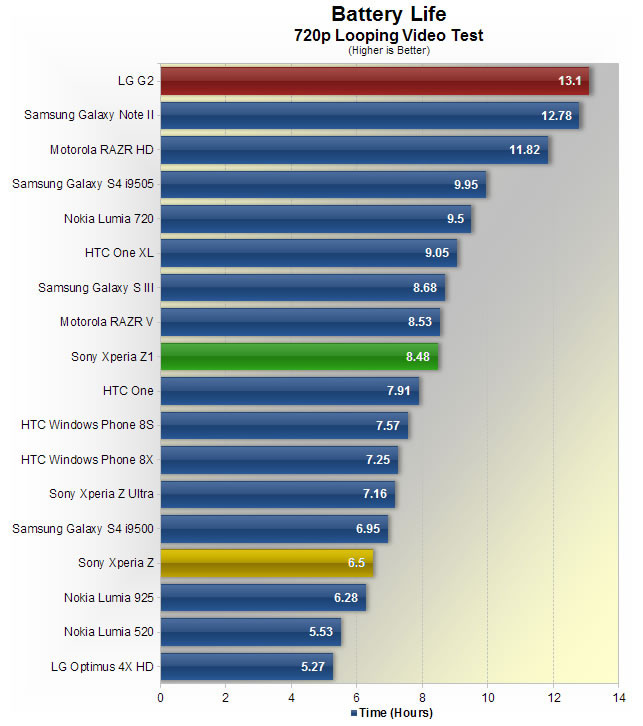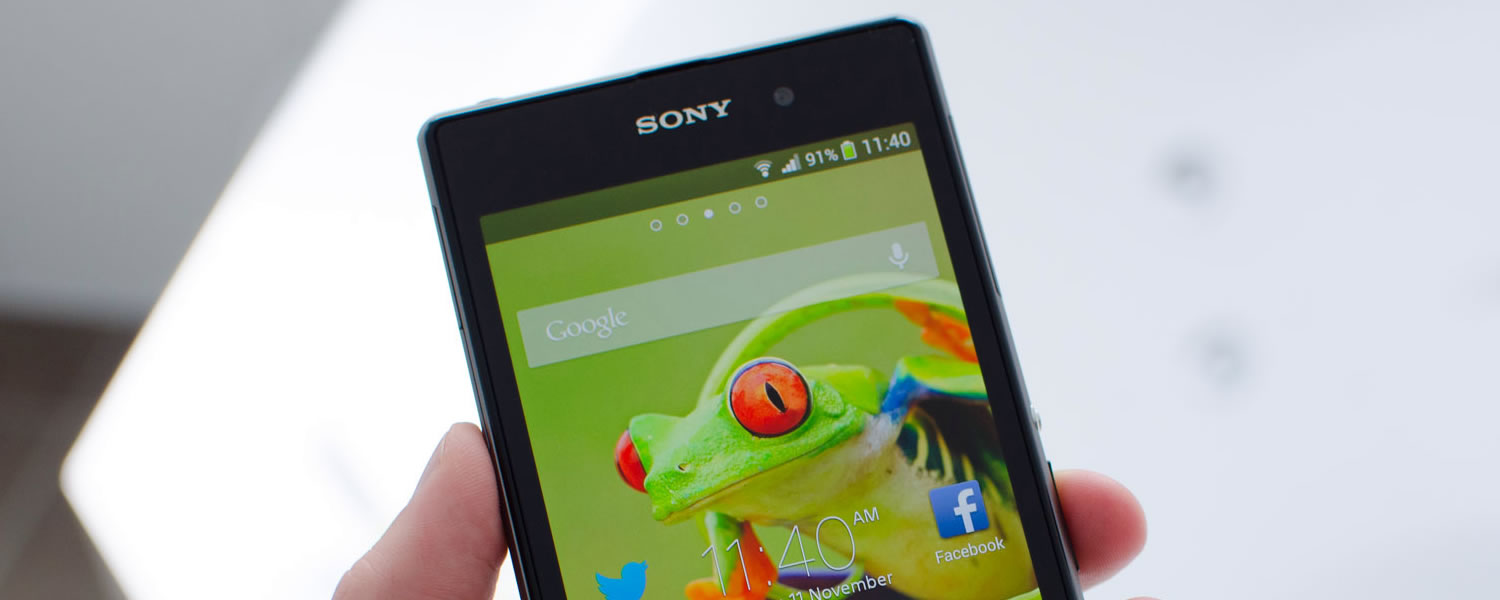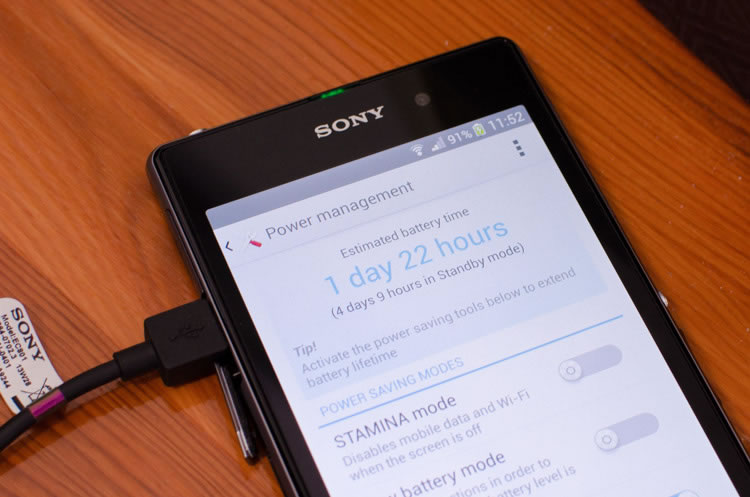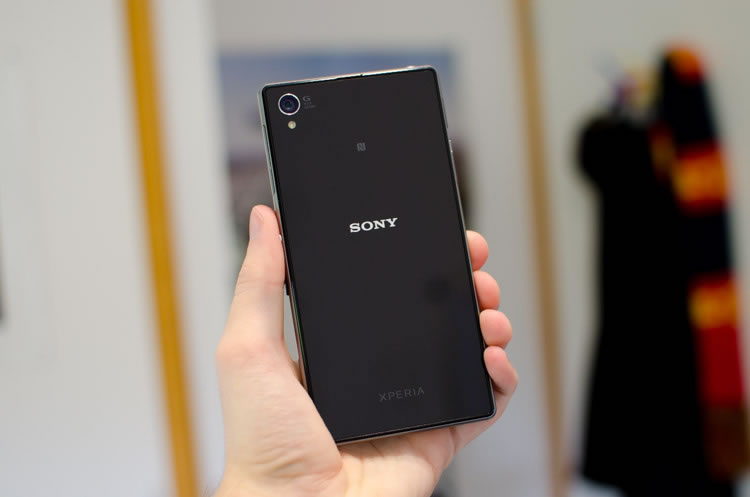Battery Life, Who Is It For?
Behind the rear glass panel on the Xperia Z1 is an 11.4 Wh (3,000 mAh) non-removable battery, which is a significant upgrade from the 8.85 Wh battery found in the Xperia Z. There are more powerful internals in the Z1, but through keeping the same display size, there should be a definite increase in regular battery life.
Where the Xperia Z’s stamina was mediocre and failed to last me through a day, the Xperia Z1 redeems itself by producing fairly decent battery life. With a regular amount of moderate usage – such as checking social media regularly, background data syncing, browsing the web, a few messages and calls, and taking a few camera shots – the Xperia Z1 lasts until the end of the day with 30% or more charge remaining. If you've decided to crack out a game on your train ride to work, you’ll be able to achieve around five hours of serious game time before the phone will need a charge.

In our battery life test, where we loop a 720p video at 75% brightness in airplane mode until the phone dies, the Z1 lasted a respectable eight and a half hours. It also has the best battery life of the three current-generation Xperia phones I’ve tested, lasting 30% longer than the Xperia Z.
However what’s more interesting to note from this test is the performance of the LG G2 compared to the Xperia Z1. Both smartphones have the same battery size, same Snapdragon 800 SoC and similar display sizes (the G2 has a 5.2” display, compared to 5.0” on the Z1), but the G2 lasts four and a half hours longer: a whopping 54% increase. The difference carries over to everyday usage as well, where the G2 lasts notably longer than the Xperia Z1.
I’m not completely sure what causes this massive difference in battery life, but it’s safe to assume the reason lies both with software optimization and differences in display technology, as the brightness levels of both displays at 75% are roughly equal. While the Z1’s stamina isn’t disappointing by any means, it’s certainly possible to harness more juice out of the hardware, which is hopefully something Sony will work on in future smartphones.
Final Thoughts
The Xperia Z1 is all about the camera. Anyone looking for a flagship Android smartphone with the most capable camera needs to look no further than the Xperia Z1. The 20.7-megapixel Exmor RS sensor affords fantastic resolution and superb overall quality, and although optical image stabilization is missing from the camera setup, low-light performance is much improved. You can even photograph underwater thanks to IP58 water resistance and a dedicated camera button, making the Z1 more versatile than its older brother; the Xperia Z.
Three other aspects have been improved since the original Xperia Z: build quality, performance, and battery life. While the Z1 features largely the same design as the Z, the new aluminium body feels stronger and sturdier, and the Snapdragon 800 SoC places the device at the top of the performance tree.
Unfortunately Sony has failed to improve the display, and so the Xperia Z1 is left with a panel whose quality is behind that of other high-end devices. This is probably the device’s most significant downside, and really should have been addressed considering the same issue was present in the Xperia Z.
Ultimately, it’s the camera that will sell the Xperia Z1, as it’s clearly the best aspect of this device. For users where the camera is less of a concern, I wouldn’t go so far to say the Xperia Z1 is the best device you can get. It’s certainly good, but the Samsung Galaxy S4, LG G2, Apple iPhone 5s, Google Nexus 5 and HTC One are arguably more complete devices across the board and are worth considering on the quest of finding a handset to get you through the next year or more.
score
Pros: Awesome 20.7-megapixel camera replaces the need for a point-and-shoot. Packs solid performance, decent battery life and a waterproofed design.
Cons: Display quality is behind other top devices as is the software package that brings nothing interesting to the table. Lacks the feeling of a complete package, despite its strengths.


